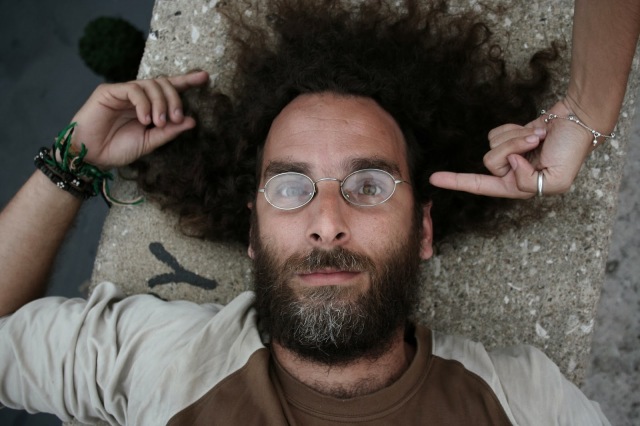December starts in New York.
The people don’t notice it, because they are not Cubans. But December is the month of death and of hope. The end of a year. We are still here. Another year begins. We don’t know if it will be our final date. Beauty and liberty surround us leaving us no alternative to sadness. We miss some love.
That’s Manhattan. The place where with each new life we miss the same old love. Although people don’t notice, because they aren’t Cubans, and December just appears to be another excellent commercial opportunity.
My name is Orlando Luis. I was born on the 10th of this month in 1971. I will turn 42 outside Cuba. Pardon the ambivalence. Maybe outside of Cuba I will turn 42. Perhaps it has been 42 years since my homeland deported me.
Whatever the statistics of the Revolutionary State say and their comparisons with other emigrants, there is not one Cuban outside of Cuba who has not been deported. The dreams demonstrate it, although they are not enough to take the Castro brothers to an international court.
Those recurrent nightmares of exile bring us together around the evil axis of what Castroism has meant for our bodies. We know that the Cuban people is a fascist invention from before independence. But our bodies suddenly collimated by the same sovereign dreams still permit us to recognise ourselves as a nation.
We are Cubans because we dream the same terror, because our land terrifies us so that nobody who is really Cuban really wants to return.
We are Cubans because our heads sway in communion during the mornings of sweat, tremors, sleepwalking, funny faces, halitosis, frog in the throat, pills, snoring, apnea, and awakening with tears, while we imagine we are in Havana, but what perversely persists outside is now New York.
December in Manhattan is the most desolate and uncomfortable season of the year.
We remember, also, our cadavers abandoned with the prosaic haste of the party. Well, I have bad news recently arrived from our island: in the Cuban cemeteries there is a dismal sacrilegious fraud going on. Many bones have been looted by the negruno pantheon. Others have been captured by the political police to osteoporosisize the history of their crimes and, in passing, to sabotage any future homage to their victims. Still others are in the hands of apprentice doctors and also artisans working for CUC (Cuban convertible currency) making tortoiseshell jewellery.
The rest is a mixing up of common graves with family ones. Neither Martí nor Ché nor any of the remnants of our despotic heritage are what it says on the label. The marble tells lies. Neither grandmother nor aunt nor your love are waiting for you there. Cuban cemeteries are a puzzle which our own flight has left without a code to decipher.
I repeat it but not without pain: it’s very late already, we won’t go back there where no-one is left.
The diffused December nation waits for the first snows and celebrations summing up the year. The Cubitas diaspora thickens little by little, according to the Cuban exile it disappeared. We are a will-o-the-wisp, juggling lights, an optical error of refraction.
We breathe. We swallow the free air of New York. We recognise ourselves as strange beings in front of the shop windows of almost mournful luxury. To be the phantom mannequins on this side. Not mixing with anything, because we will always be with one half of our soul on each side of the glass, violently Cuban shadows whose memory is fragile but very well fermented. We are not simply at the moment, but we are indeed half New York and half Havana.
I put up my coat collar. Stick my hands in my pockets. I look like someone out of a crime thriller, half way between private detective and serial killer. I cough. The New York cough of Cubans without a Cuba is also a lingering symptom. We cough out of sheer stubbornness. We worry about our lungs, about the rheumatic rhythm of our breathing, but in practice we hardly ever get ill unless it’s to die.
By then, by the time we suffer a New York December, we will be destroyed, consumed. People will not notice, because they will not be Cubans. But December will again be the month of the death of hope. Another year which will not have put an end to everything. Still we will not be so many here. Another year which never stops starting, since no date would be able to finish us off.
The sadness which surrounds us makes us free and beautiful with that brilliance which is wonderful and has no alternative, implying complete truth. We do of course miss some love.
Translated by GH
2 December 2013





